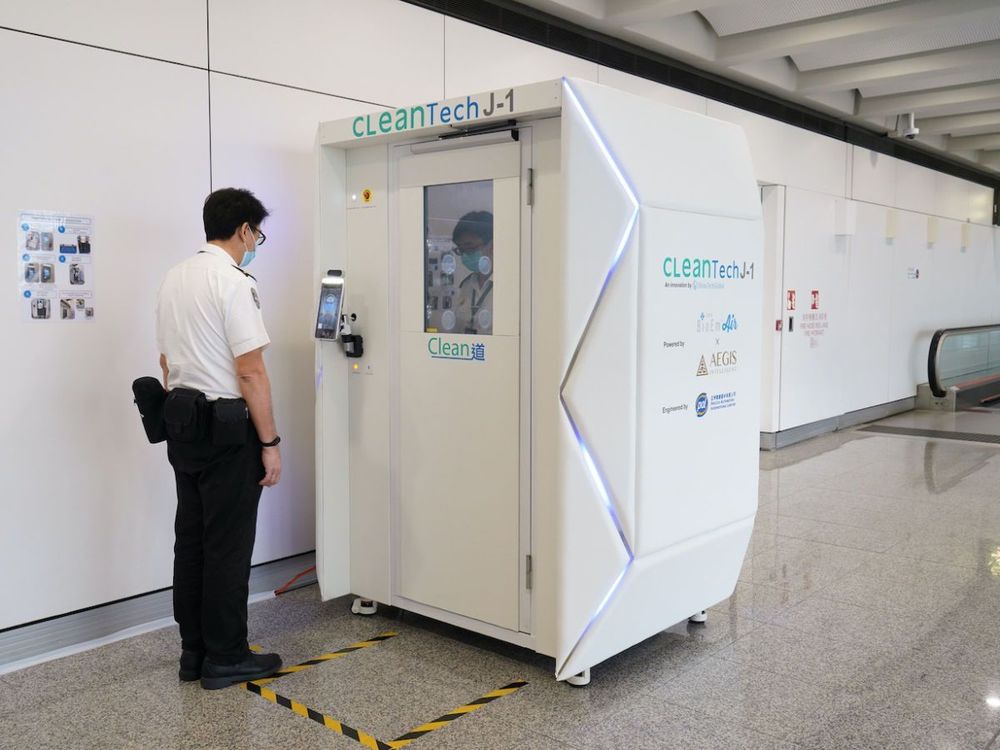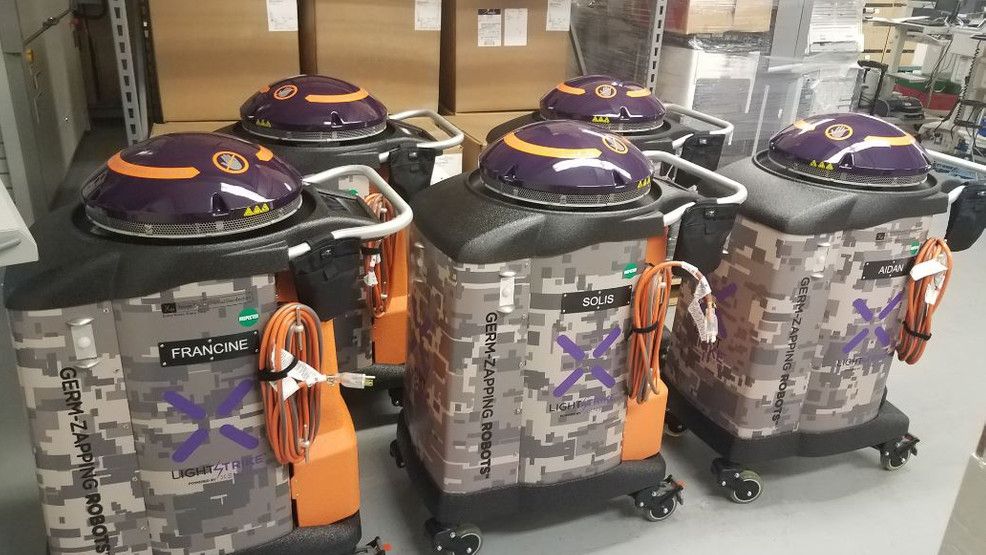Bot Sentinel conducted an analysis and found bots and trolls are using hashtags like #ReopenAmericaNow and #StopTheMadness to spread disinformation.



COVID-19 can remain in the air in closed spaces.
Tras la propagación del virus, científicos se han dedicado a comprobar si es posible el contagio por medio del aire
Investigadores del laboratorio Estatal de Virología de la Universidad de Wuhan indicaron que debido a la pandemia causada por el creciente número de contagios por coronavirus, distintos estudios se han dedicado a comprobar si es posible el contagio por medio del aire.
De acuerdo con el estudio publicado en la revista Nature, el coronavirus puede permanecer en el aire de los espacios que carecen de ventilación, es importante mencionar que el mayor factor de riesgo es el contacto con las gotículas de una persona infectada.
This robot is a drone and a generator that can go on surveillance missions. Is there anything it can’t do?

#OopsMyBad #Busted 🤔
Yes you read this right. The WHO criticized a drug and used a reference that was neither peer reviewed or published 🙄…Then they removed it as if no one would notice.
The antiviral medicine remdesivir from Gilead Sciences failed to speed the improvement of patients with Covid-19 or prevent them from dying, according to results from a long-awaited clinical trial conducted in China. Gilead, however, said the data suggest a “potential benefit.”
A summary of the study results was inadvertently posted to the website of the World Health Organization and seen by STAT on Thursday, but then removed.
“A draft manuscript was provided by the authors to WHO and inadvertently posted on the website and taken down as soon as the mistake was noticed. The manuscript is now undergoing peer review and we are waiting for a final version before WHO comments on it,” said WHO spokesperson Daniela Bagozzi.
Eric klein.
If you followed the world of pop-culture or tech for some time now, then you know that advances in artificial intelligence are heating up. In reality, AI has been the talk of mainstream pop-culture and sci-fi since the first Terminator movie came out in 1984. These movies present an example of something called “Artificial General Intelligence.” So how close are we to that?
No, not how close are we to when the terminators take over, but how close are we to having an AI capable of navigating nearly any problem it’s presented with.


Xenex Disinfection Services found out today its ultraviolet light technology is 99.9 percent effective in eradicating the virus, according to the Texas Biomedical Research Center.
“This is what the world has been looking for„” says Xenex CEO Morris Miller, “to make sure there’s a device that can actually kill the real virus.”
Xenex robots cost $125,000 and are now being ordered by hospitals, hotels, airlines and even the Governor of Texas.
SAN ANTONIO — A local company has learned its robot completely removes COVID-19 from rooms and masks. Xenex Disinfection Services found out today its ultraviolet light technology is 99. 9 percent effective in eradicating the virus, according to the Texas Biomedical Research Center. “This is what the world has been looking for„” says Xenex CEO Morris Miller, “to make sure there’s a device that can actually kill the real virus. ”.


Alzheimer’s disease is the sixth leading cause of death in the United States, affecting one in 10 people over the age of 65. Scientists are engineering nanodevices to disrupt processes in the brain that lead to the disease.
People who are affected by Alzheimer’s disease have a specific type of plaque, made of self-assembled molecules called β-amyloid (Aβ) peptides, that build up in the brain over time. This buildup is thought to contribute to loss of neural connectivity and cell death. Researchers are studying ways to prevent the peptides from forming these dangerous plaques in order to halt development of Alzheimer’s disease in the brain.
In a multidisciplinary study, scientists at the U.S. Department of Energy’s (DOE) Argonne National Laboratory, along with collaborators from the Korean Institute of Science and Technology (KIST) and the Korea Advanced Institute of Science and Technology (KAIST), have developed an approach to prevent plaque formation by engineering a nano-sized device that captures the dangerous peptides before they can self-assemble.

“Most of the vendors have a plan to have a pilot as well as autonomous operations,” he added.
“Since we have put our hand up and said, ‘We want to accelerate this market so that it’s dual-use, the military wants to buy the exact same vehicle that would be available domestically,’ companies have shared with us privately that they have seen the amount of investment given by venture capitalists go up,” Roper said. “And they expect that that will continue the further we go through the door on competition.”
The Air Force plans to request funding for flying car research in the fiscal 2022 budget request, in addition to the research funding the service already set aside for the experiment, he said.